Golden Fiber: The Legacy and Impact of Jute
Jute, often referred to as the “Golden Fiber,” is a testament to nature’s remarkable gift to mankind, especially in the context of Bangladesh. This term, “Golden Fiber,” embodies not just the economic value but also the cultural, environmental, and historical significance of jute. JuteLover, a brand dedicated to promoting and sustaining the legacy of jute, emphasizes the multifaceted benefits of this extraordinary fiber. In this description, we explore why jute is rightly called the Golden Fiber, highlighting its relationship with the Bengal delta, its monopolistic advantages in the region, the anthropological development around it, its influence on local culture, the struggles of cultivators, the impact of global events, and its modern renaissance.
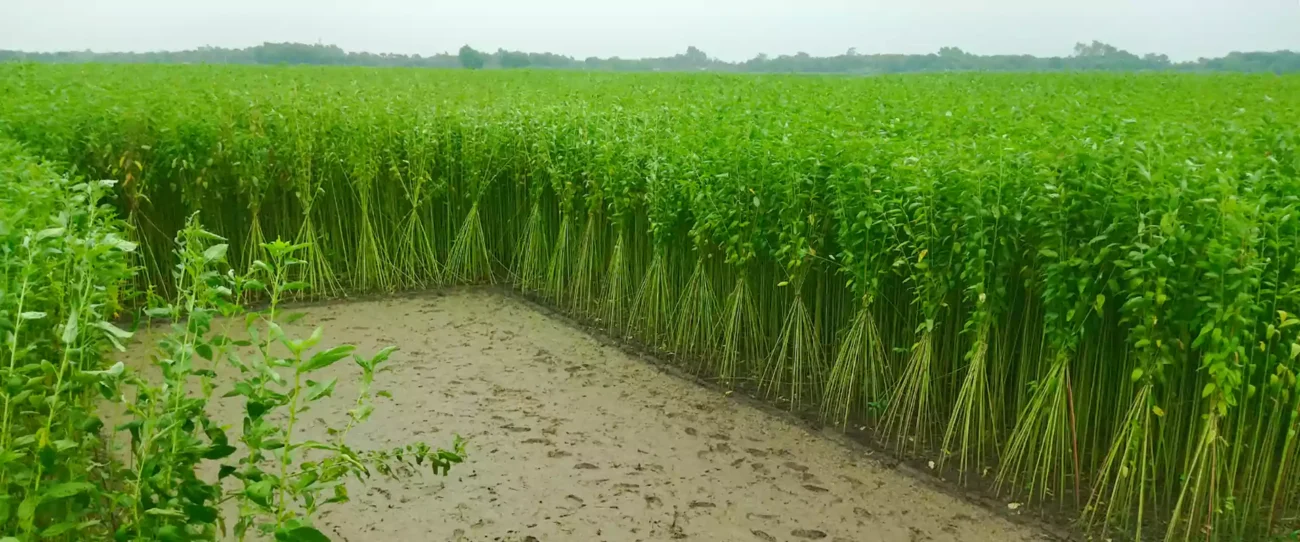
The Bengal delta, a fertile region enriched by the mighty Ganges and Brahmaputra rivers, provides an ideal environment for jute cultivation. This region, characterized by its alluvial soil, abundant water supply, and favorable climatic conditions, has made Bangladesh one of the top producers of jute in the world. JuteLover recognizes the profound connection between the land and the crop, emphasizing how the unique geographical features of the Bengal delta have nurtured the growth of jute, enabling it to flourish and sustain the local economy.
The soil of the Bengal delta, rich in nutrients and organic matter, is particularly suited for jute cultivation. The heavy monsoon rains and warm, humid climate create perfect conditions for the jute plants to thrive. This natural monopoly allows Bangladesh to produce the highest quality jute, distinguished by its strength, durability, and golden hue. JuteLover aims to bring this exceptional quality to the global market, showcasing the superior characteristics that make Bangladeshi jute unparalleled.
Jute has played a central role in the development of the anthropology of Bengal. For centuries, it has been a staple crop, shaping the livelihoods and social structures of the region. The cultivation and processing of jute have fostered community bonds, traditions, and a way of life that is deeply intertwined with this golden fiber. JuteLover celebrates this heritage, highlighting how jute has influenced the daily lives, customs, and cultural practices of the people in the Bengal delta.
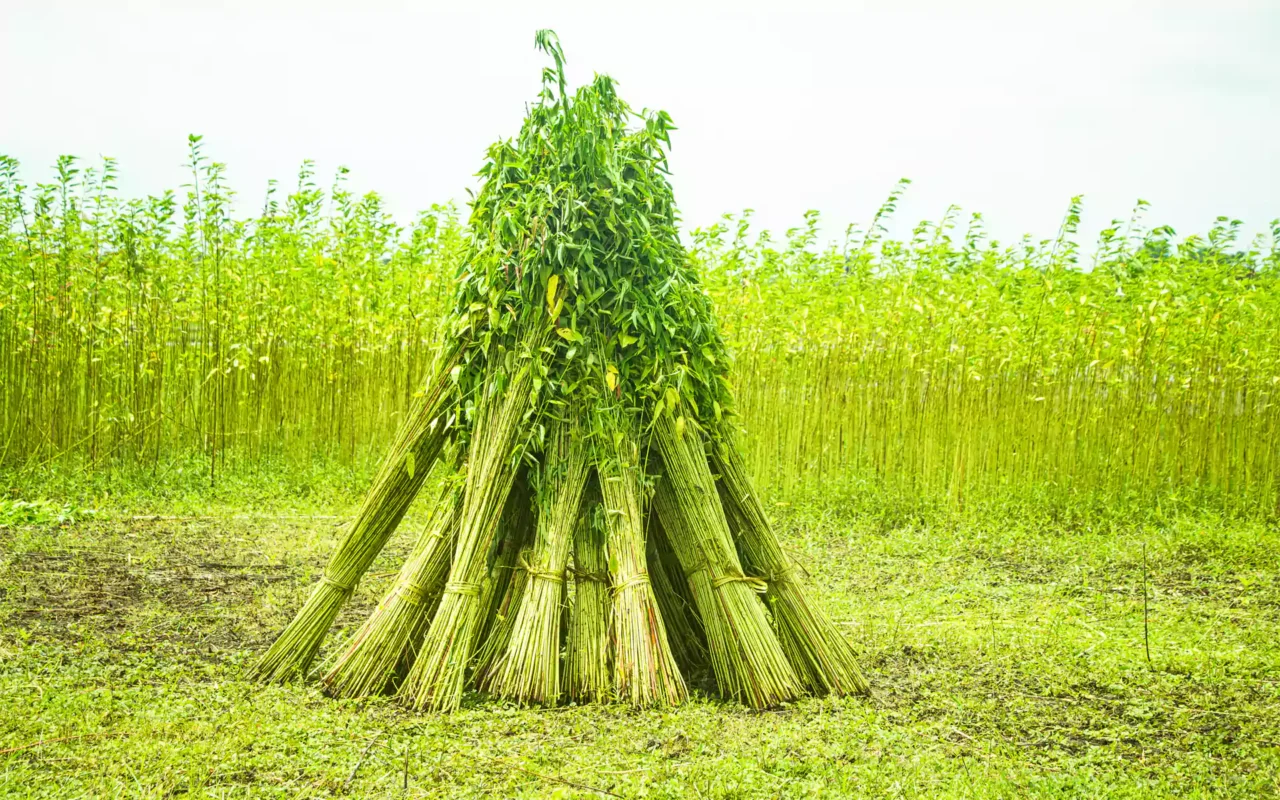
The cultural significance of jute in Bengal cannot be overstated. From traditional crafts to everyday utilities, jute has been a part of the fabric of society. Festivals, rituals, and folklore often feature jute, symbolizing prosperity and resilience. JuteLover is committed to preserving and promoting this cultural heritage, ensuring that the legacy of jute continues to inspire future generations. By integrating jute products into modern lifestyle choices, JuteLover bridges the gap between tradition and contemporary living.
Despite its importance, jute cultivators have faced numerous challenges. Historically, feudal lords and middlemen exploited farmers, depriving them of fair compensation for their labor. This exploitation often led to financial distress, and in extreme cases, even suicides among the farming community. JuteLover stands in solidarity with these farmers, advocating for their rights and striving to establish a direct connection between producers and consumers. By eliminating intermediaries, JuteLover ensures that farmers receive their rightful share of profits, fostering a sustainable and equitable jute industry.
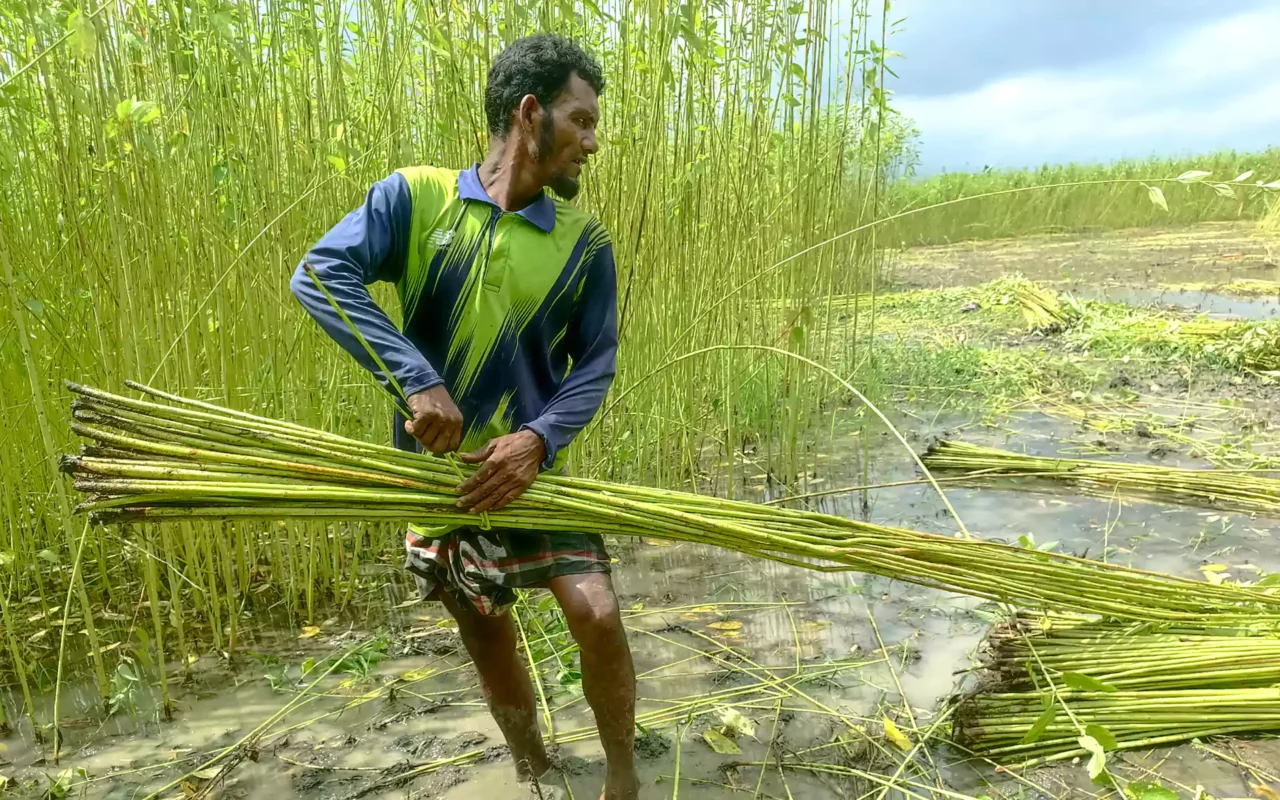
World War II had a significant impact on the jute industry. The disruption of trade routes and the shift in global economic priorities affected jute exports from Bengal. However, the resilience of the jute community ensured that the industry survived these challenges. In the post-war period, the demand for jute surged as the world recognized its value as a versatile and sustainable material. JuteLover honors this resilience, continuing the legacy of overcoming adversity and thriving in the face of global challenges.
The modern renaissance of jute is also reflected in the education system. Academic institutions and research bodies are increasingly focusing on the potential of jute in sustainable development. JuteLover collaborates with these institutions to provide hands-on experience in jute cultivation and processing, fostering a new generation of jute enthusiasts and experts. By promoting research and innovation, JuteLover ensures that jute remains relevant and valuable in contemporary times.
Jute is not just a fiber; it is a sustainable solution to many of the environmental challenges we face today. As a biodegradable and renewable resource, jute plays a crucial role in reducing plastic pollution and combating climate change. JuteLover emphasizes the importance of replacing synthetic materials with jute to promote eco-friendly practices. For instance, 40 kg of jute can produce approximately 48 kg of oxygen and neutralize approximately 73.4 kg of CO2 over its growth period. These environmental benefits highlight jute’s role in carbon sequestration and greenhouse gas reduction, making it an essential component of sustainable development.
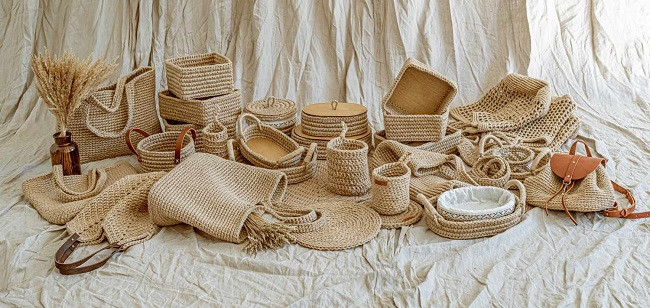
Jute’s versatility extends beyond traditional products like bags and ropes. Modern innovations have led to a wide range of jute-based products, including geo-textiles, composites, and even biodegradable plastics. JuteLover is at the forefront of promoting these diversified uses, showcasing how jute can meet the demands of various industries while remaining environmentally friendly. By integrating jute into everyday products, JuteLover not only supports sustainable development but also enhances the quality and durability of these products.
The economic impact of jute on Bangladesh is profound. As the world’s second-largest producer and the largest exporter of jute, Bangladesh plays a pivotal role in the global jute trade. JuteLover leverages this position to promote fair trade practices and enhance the economic well-being of jute farmers. By expanding the market for jute products and ensuring fair compensation for producers, JuteLover contributes to the overall economic development of the region.
JuteLover is committed to social responsibility and community development. By supporting jute farmers and promoting sustainable practices, JuteLover aims to uplift local communities and improve their quality of life. Initiatives such as education programs, healthcare services, and infrastructure development are integral to JuteLover’s mission. By investing in the well-being of jute farming communities, JuteLover ensures that the benefits of the jute industry are shared equitably.
Jute, the Golden Fiber of Bangladesh, symbolizes the rich heritage, cultural significance, and sustainable potential of this remarkable crop. JuteLover, through its dedication to promoting and preserving the legacy of jute, plays a crucial role in ensuring that the benefits of jute are realized globally. From the fertile lands of the Bengal delta to the homes and industries around the world, jute continues to weave a story of resilience, sustainability, and prosperity. By embracing jute, we not only honor a timeless tradition but also pave the way for a greener and more equitable future.
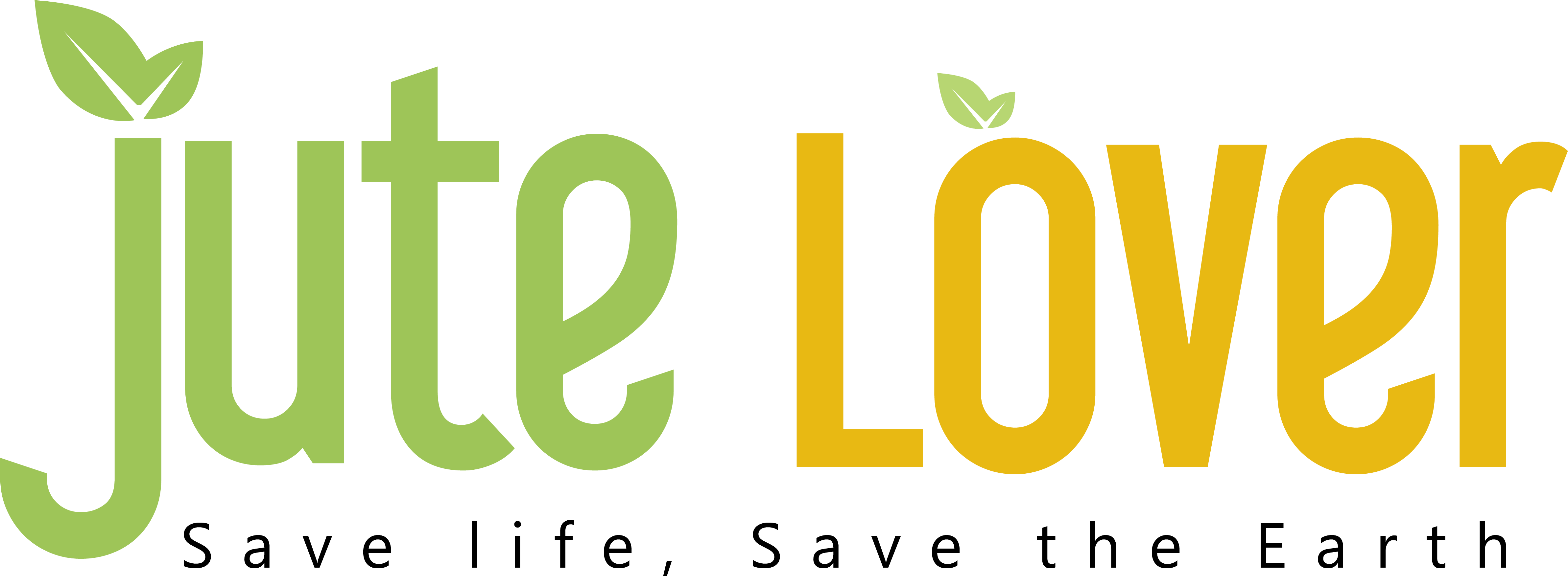
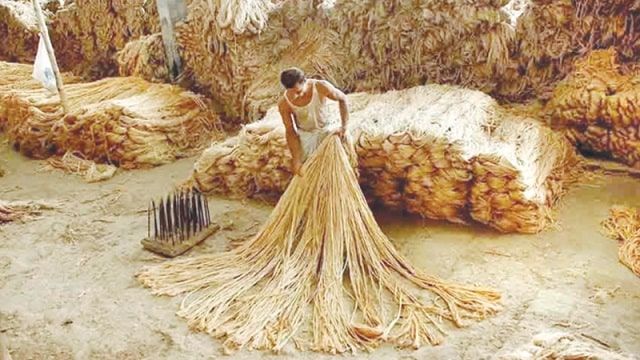
 Jute Rugs
Jute Rugs